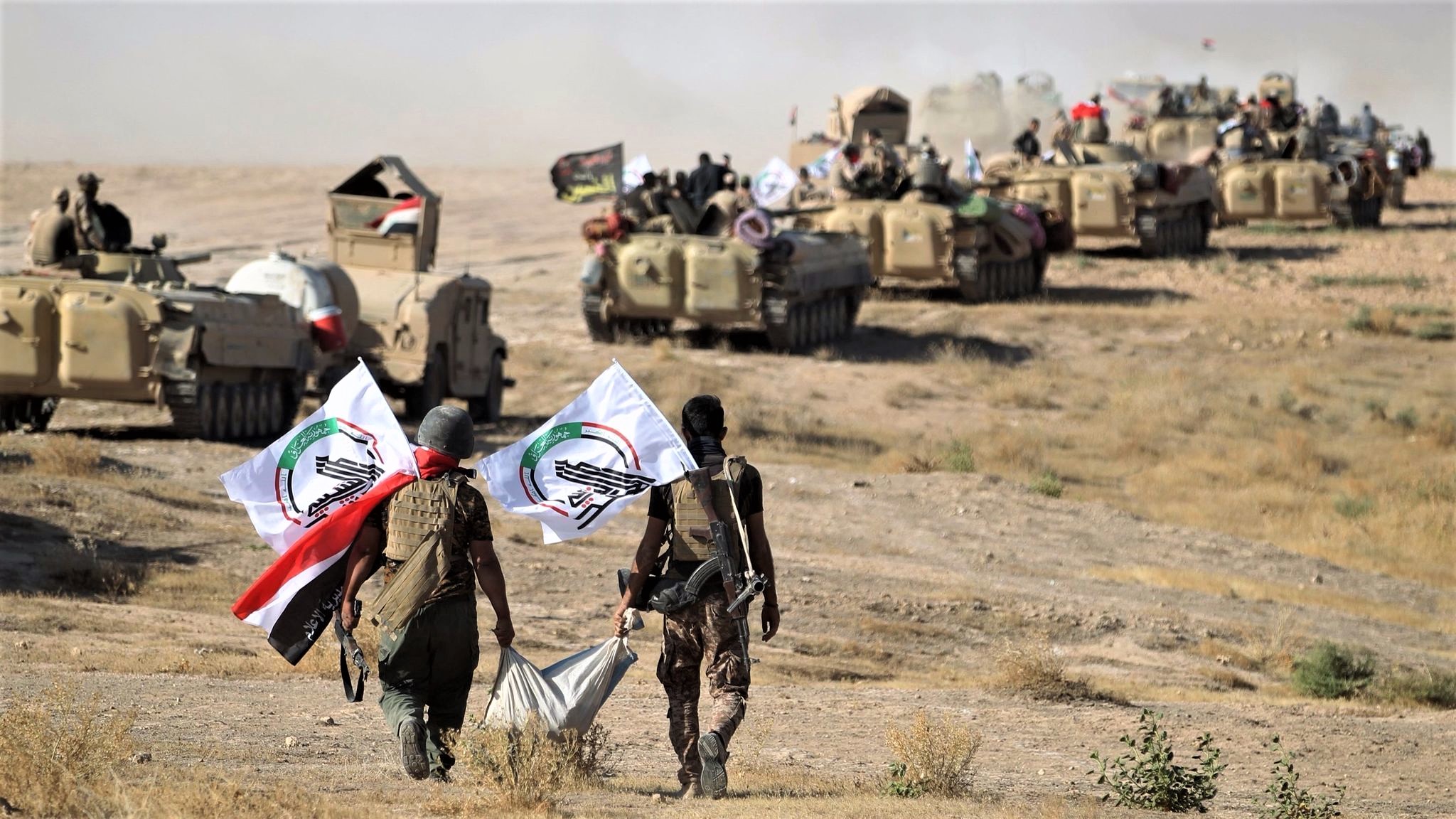US sanctions head of Iraq’s Popular Mobilization Forces

WASHINGTON DC (Kurdistan 24) The US announced on Friday that it was sanctioning Falih al-Fayyadh for “serious human rights abuses” committed against Iraqi citizens protesting gross government mismanagement.
The US announcement also noted Tehran’s role in suppressing Iraq’s popular protests—in particular, that of Qassim Soleimani, head of the Quds Force of Iran’s Islamic Revolutionary Guard Corps (IRGC-QF), until his assassination by the US a year ago, as he flew into Baghdad from Damascus.
The Iraqi protests began in the autumn of 2019, and they led to the fall of Iraqi Prime Minister, Adil Abdul Mehdi. Fayyadh was Abdul Mehdi’s National Security Advisor, but he lost that position in July 2020, after Iraq’s current prime minister, Mustafa al-Kadhimi, assumed office, following Abdul Mehdi’s resignation, because of the protests.
However, Fayyadh has retained a second position which he has long held: head of the Popular Mobilization Forces (PMF.) Although the PMF report formally to Iraq’s Prime Minister, Iran has considerable influence over them—probably more than the Iraqi premier.
“During protests beginning in October 2019, Iran-aligned elements of the [PMF] attacked Iraqi civilians demonstrating against corruption, unemployment, economic stagnation, poor public services, and Iranian interference in Iraq’s domestic affairs,” the Treasury Department stated, as it announced the new sanctions.
“Fayyadh was part of a crisis cell comprised primarily of PMF militia leaders formed in late 2019 to suppress the Iraqi protests,” the statement continued, “with the support of the IRGC-QF.”
Indeed, Soleimani was a member of the crisis cell, the Treasury Department explained. Soleimani was, by far and away, the most powerful and experienced member of the crisis cell.
One can reasonably conclude that it—and by extension, the PMF—acted at Soleimani’s direction, as it suppressed the protests.
“Today, Iran-aligned elements of the PMF continue to wage an assassination campaign against political activists in Iraq who are calling for free and fair elections, respect for human rights, and clean government,” the Treasury statement added.
A month ago, the US sanctioned three leaders of pro-Iranian militias—including Qais al-Khazali, head of Asa’ib Ahl al-Haq—on similar grounds.
Read More: US sanctions Iran-backed militia leaders for killing Iraqi demonstrators
A week ago, the Iraqi High Commission for Human Rights (IHCHR) reported that there have been 33 cases of assassinations and attempted assassinations targeting “activists, protestors, and journalists,” since the protests began in October 2019.
Read More: 33 cases of assassination in Iraq since start of Iraq protests: IHCHR
“Although the PMF was established to fight the Islamic State of Iraq and Syria (ISIS),” the Treasury Department said, “many PMF militias are increasingly focused on advancing their own economic interests and supporting Iran’s regional agenda in Iraq.”
It also explained that “hundreds of Iraqis” died, when elements of the PMF “fired live ammunition at peaceful protestors in late 2019.”
Fayyadh is, to date, the most important Iraqi Shi’ite political figure to be sanctioned by the US.
Editing by John J. Catherine
